Birmingham Council postpones Uber vote as 5 councilors no-show
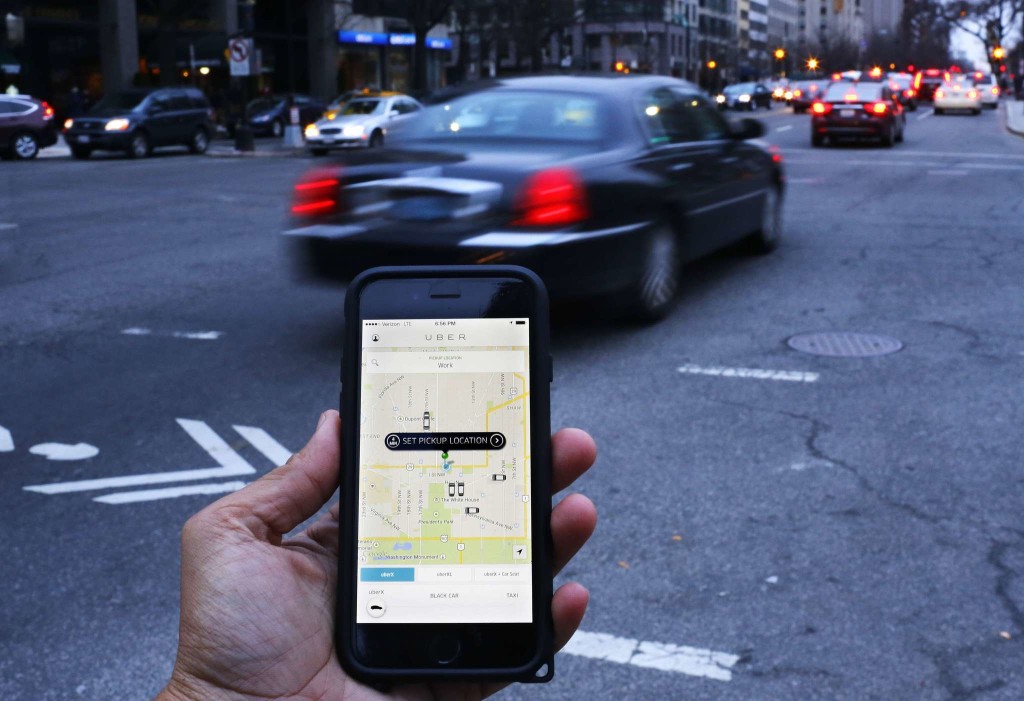
A scheduled vote on whether to approve new rules allowing ride-hailing services like Uber and Lyft to operate in the Magic City was postponed Tuesday afternoon for lack of a quorum required to vote. Council President Johnathan Austin, Councilman Steven Hoyt, Councilwoman Sheila Tyson, Councilwoman Lashunda Scales and Councilman Marcus Lundy did not attend the meeting, requiring members to adjourn before hearing the ride-hailing item on the agenda. The Birmingham City Council was slated to take up an ordinance that would allow so-called ridesharing firms to set up shop in the city by next month, along with other issues. Council members Jay Roberson, Valerie Abbott, Kim Rafferty and William Parker were in attendance. They waited about an hour before telling an increasingly restive audience the meeting would have to be scuttled. The delay may push back the beginning of Uber’s operations in Birmingham until 2016. “It’s disappointing that Birmingham residents have to continue waiting for safe rides and economic opportunity,” said Uber spokesperson Kaitlin Durkosh Tuesday. “We look forward to the draft ridesharing regulations from last week’s Committee of the Whole meeting crossing the finish line next Tuesday, so that we can bring ridesharing to Birmingham in advance of the New Year,” said Durkosh. Some Birmingham residents took to the “Magic City Movement” Facebook page established to support Uber’s efforts to voice their displeasure with the councilors’ actions. “Collusion,” is what user Sam Lewis chalked it up to. “Everyone in the BCC ignoring the people’s voice on this extremely important matter deserve to be reprimanded by not receiving your vote during the next election.” Another group member, Kris Reeves, opined: “These people, who were put in charge to lead our great city, are holding us back. I constantly defend Birmingham, but things like this make it extremely difficult. They are keeping us the laughingstock of major US cities.” Planned votes on several road improvement projects and re-upping the contracts of city consultants also were casualties of the no-show. Council President Austin said the members missed the vote because “most people are out of town visiting family for Thanksgiving.”
Email Insights: What just one year of Uber could do for the Magic City
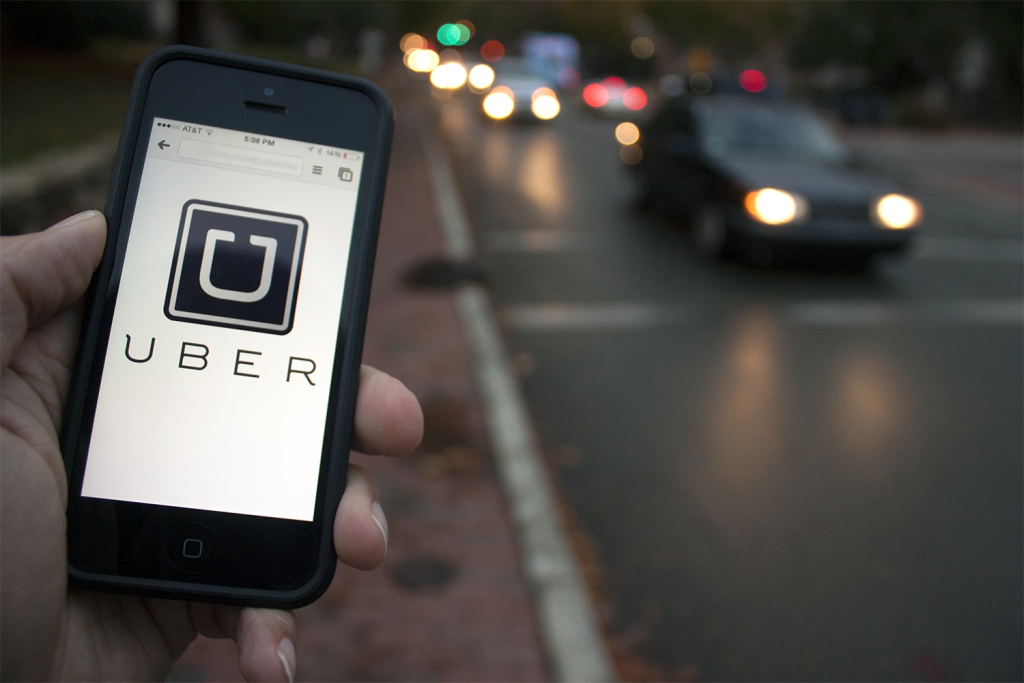
Another week and the Magic City still doesn’t have Uber. Over two and a half months ago Uber executives travelled to the Birmingham to meet with the city’s Committee of the Whole to discuss the potential for ridesharing companies to operate in the city. Despite promising discussions, the city has done very little to move the ball forward. Instead, the Birmingham City Council focused on drafting an overhaul the city’s transportation code. “This is a complete rewrite to all sections of the code, including the horse-drawn carriage section, and we need to hear from as many stakeholders as possible,” Councilor Kim Rafferty said. “This input will ensure that we have addressed or properly regulated all forms of motorized vehicle, pedicab, and horse transportation in the City of Birmingham, without compromising the regulatory integrity of other jurisdictions in which these companies and services may work in.” The council took public comments on the proposed changes through Friday, and now Magic City residents will wait for a special called meeting at 5 p.m. Nov. 17 at city hall to hear more about the comments and code updates. Meanwhile Uber is still making a public case as to how it will help improve life in the Magic City while simultaneously doing everything they can to alleviate any fears Birmingham officials may have, including publishing in in-depth look at the impact of just one year of Uber in the city would look like. For a look at what just one year of Uber could do for the Magic City, check out the email below: As the largest metro area in Alabama, Birmingham has a lot to offer residents and visitors. Beyond being the cultural and entertainment capital of the state, downtown Birmingham has great restaurants, shops, and dozens of apartment buildings under construction. It’s also seen job growth over the past five years and is ranked high for millennial entrepreneurs. But the greater metro area lacks transportation options to support downtown Birmingham’s resurgence, and 24 percent of Jefferson County residents are still underemployed. Ridesharing can help bridge such gaps. Options like Uber will offer safe, reliable rides in the community while simultaneously providing residents with an opportunity to make supplemental income. Using similar Uber cities as a comparison, we looked into the potential impact that Uber could have in Birmingham after just one year of operating uberX – our ridesharing product – under a sensible set of regulations that reflect the business model. Take a look at the projections to see just what Uber could do for Birmingham when it comes to moving people, offering economic opportunity and making our communities safer. Providing a Safe, Reliable, and Affordable Transportation Option Tens of thousands of people in Birmingham – and in the surrounding suburbs – have opened up the Uber app looking for a safe ride. It’s clear there is great demand for more transportation options throughout the greater Birmingham area so that people can safely travel to their destinations. We project that Birmingham residents and visitors will complete more than 116,000 trips in our first year of operating in the city. Having an Impact on the Local Economy Uber will undoubtedly have a positive impact on the Birmingham economy. Local drivers will have the opportunity to use Uber and turn on their ability to work and make supplemental income at their leisure. If Uber is able to operate our ridesharing product, uberX, we predict that more than 670 greater Birmingham area residents will be partnering with Uber in just the first year of operations. These driver-partners will have the potential to earn a combined $1,500,000 in net fares in the first year, with room to grow in future years. Making Birmingham a Better, Safer Place to Live Whether it’s your average Friday night or day of a big event like Magic City Classic or Sloss Fest, the increased availability of a reliable, affordable late night transportation option will provide a dependable alternative to driving under the influence in Birmingham. According to MADD, in the past year in Alabama, there were 260 drunk driving fatalities (.08 BAC or higher), representing 30.5 percent of all total traffic deaths, a 8.3 percent increase from the previous year. In Baton Rouge, a city similar to the size of Birmingham, DUI arrests are down nearly 18 percent in a year since Uber entered market. As the graph below shows, we expect to see demand peak at the same time alcohol related crash fatalities are at their highest — right around “last call” during late nights. This means Uber has the potential to save lives in the Magic City since people are expected to request a safe, reliable ride with Uber at times when they may have otherwise gotten behind the wheel. Despite being able to have such an impact in the Magic City, the public proposals thus far are unworkable and don’t reflect the ridesharing business model. For Uber to come to Birmingham, city officials need to pass pro-innovation regulations that will enable residents and visitors to use the Uber they’ve experienced and enjoyed in cities around the world. More than 60 other U.S. jurisdictions have been able to accomplish this goal and we’re confident Birmingham can do the same.
Will Lochamy: We need Uber
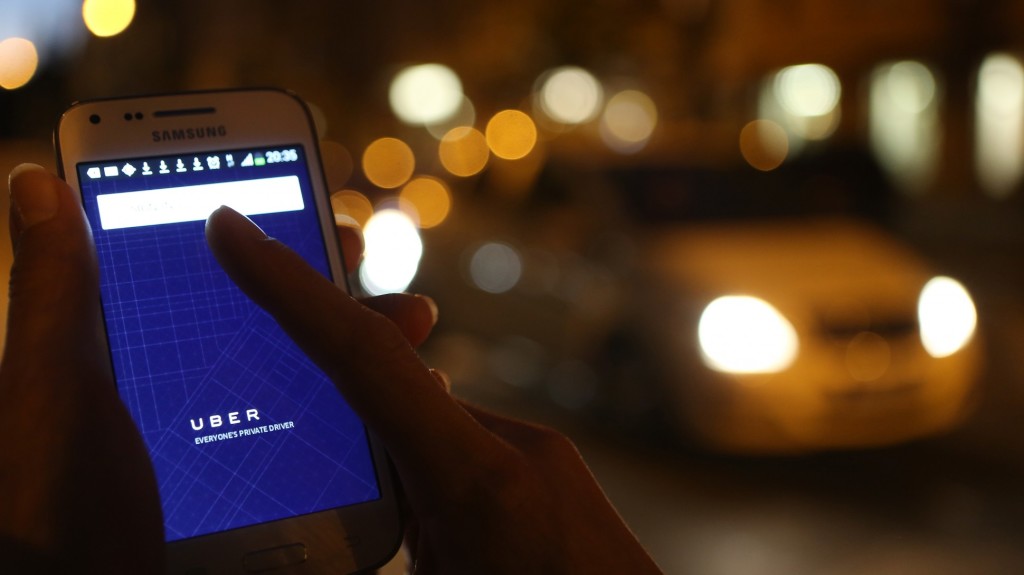
We need Uber. We need it now. And here’s why. We have a drinking and driving problem. The problem is that drunk driving is simply accepted here as part of the routine. When people go out downtown, they drive. Public transportation and rides for hire are rarely reliable and, therefore, an afterthought. We tend to forget that it’s an issue until visitors come to town and point it out, usually in shock. Cities that welcome ride-sharing see significant drops in DUI deaths even though most already have ample available taxis. This is due to the fact that Uber is generally 20-30% cheaper than traditional taxis and most find it to be much more efficient. It’s the new ride of choice across the country and world. Can you imagine the change it will bring to the citizens of our community, who don’t exactly have a happy marriage with the cab industry? Let’s not stunt our growth. Birmingham is seeing a revolution and rise in popularity like never before. This ride-share issue is one of our few, but big, black eyes. People are eager to move here for jobs and school, but the lack of simple accommodations that they can find in competing cities (Nashville, Atlanta, etc.) will keep many out. Investors are watching this, I assure you. Let’s not be the antiquated Birmingham many expect us to still be. SEC Media Days, Sloss Fest, the SEC Baseball Tournament, the Birmingham Bowl… the list goes on. Our area hosts legitimate events that bring large crowds to town. Let’s keep it that way and look good while we do it. Thanks to social media, the lack of transportation is no longer just our frustration. Visitors are taking to the airwaves and Twitter to express their frustration with not being able to get around Birmingham. Beyond having to deal with embarrassment, we might have to deal with these events losing support and even moving to other, twenty-first-century-compatible cities. It’s time. I laugh (only because it beats crying) every time I hear city officials say how much they want Uber, then watch them turn around and speak against it at the state house and write codes that they know good and well will keep Uber from operating here. The time is now, November 2015, for Birmingham to stop this silliness and give the citizens what they want. Because apparently it’s too hard for our officials to look at any of the specific TNC (ride-sharing) laws passed by over 60 major U.S. cities, Uber has laid out the simple answers for Birmingham’s recently written Transportation Code. I read them. They make perfect sense and are easy to understand, even for a dummy like me. It’s time. Speak up and let your voice be heard. The people in power are happy to leave us Uberless unless we do something about it. Will Lochamy is co-host of the radio show, “Oh Brother Radio” on Birmingham Mountain Radio (107.3FM).
Email insights: Birmingham’s guide to Uber ridesharing

San Francisco-based ridesharing company Uber has dominated headlines across the Yellowhammer state in 2015. Earlier this year Mobile welcomed the company to the city, meanwhile Birmingham has continued to give the Uber the run-around citing regulatory problems and concerns. Two and a half months ago Uber executives travelled to the Birmingham to meet with the city’s Committee of the Whole to discuss the potential for ridesharing companies to operate in the city. While the discussions seemed hopeful, little progress has been made in moving forward and Alabamians across the city are growing frustrated. However, these regulatory problems problems are nothing new to the ridesharing juggernaut and as such they’ve released a guide to to ridesharing to help answer questions and alleviate the concerns of Magic City residents. For Uber’s 101 guide to ridesharing in Birmingham, check out the email below. Ridesharing has only been around for a couple of years, and is very different than a taxi, a bus, or really any other transportation option out there. For instance, Uber’s ridesharing driver-partners use their personal vehicles to provide rides on their own schedules. In the U.S., 50% of Uber driver-partners, on average, drive fewer than 10 hours a week and 61% of driver-partners have full-time or part-time careers outside of Uber. Birmingham needs new rules that reflect the ridesharing model, particularly when it comes to three areas—background checks, insurance, and permitting—so that we can offer the same Uber experience riders have in places like Nashville and Atlanta. Check out how these three areas work in cities and states around the U.S., and how they need to work in Birmingham in order for Uber to operate. BACKGROUND CHECKS At Uber, our technology makes it possible to focus on safety before, during, and after a ride in ways that other transportation options cannot. While safety is more than just background checks, we believe that the process used by Uber stacks up well against the alternatives in terms of safety, and enables drivers to quickly and efficiently get on the road. All driver-partners wanting to use the Uber platform are required to undergo an extensive background check performed on our behalf by third parties accredited by the National Association of Professional Background Screeners. These providers use a process for Uber that is similar to that provided to other companies like Care.com, Starbucks, UPS, and Amazon. Going back 7 years, our vendors run a social security trace and then a background check to search for the person in a series of national, state, and local databases. These include the National Sex Offender Registry, National Criminal Search, and several different databases used to flag suspected terrorists. INSURANCE While accidents will occur in any transportation option, Uber ensures there is end to end insurance coverage in place for ridesharing trips. Uber has a commercial insurance policy that covers every ridesharing trip in the United States up to $1,000,000. So if an accident occurs while a rider is in an Uber on a trip, our insurance policy will cover personal injury and damage to property. This policy kicks in before any personal auto coverage that a ridesharing driver has and is double the amount of insurance required of taxis in Birmingham. Separately, if a driver is waiting for a ride request with the Uber app on and gets in an accident, we have an insurance policy that exceeds state minimums should the driver’s personal insurance not cover it. Do you love insurance and want to read our Alabama insurance policy? Take a look! PERMITTING REQUIREMENTS Around the country, ridesharing rules include a permitting process for the ridesharing company, like Uber, instead of for individual drivers. This process ensures a ridesharing company registers with the city or state and pays a fee to operate there, and that riders can get a reliable ride when they need one. Unlike taxi drivers, ridesharing drivers mostly use Uber part-time and for supplemental income. An individual driver permit may not be worth the cost or time for many Uber driver-partners. The process would disincentivize many drivers from partnering with Uber and make it more difficult for them to get on the road. For instance, those who have a 9-5 job and want to just use Uber on the weekends or to pay for a summer vacation would have to take off work to get this permit and may instead find a different opportunity. That means riders won’t be able to get an Uber when they need one, anytime or anywhere. Now that you’re ridesharing savvy, share your thoughts on these issues by submitting a public comment with the city. Remember, they are due November 13! If you’ve still got questions about the ridesharing business model, tweet @Uber_Alabama or reach out to support@uber.com.
Uber in Birmingham does not mean rehashing old regulations, supporters say

Birmingham insists they want Uber, but the road is not yet fully clear for the popular ridesharing service. Despite assurances from the Birmingham City Council that Uber is welcome, demonstrated in the city’s latest video update, requirements the company must first meet all “safety regulations” could become a roadblock to Uber’s expansion in Birmingham. As outlined in a document to the city’s legal department, obtained by ALToday.com, Uber’s primary concerns include outdated insurance requirements, redundant background checks and excessive licensing and permitting in jurisdictions that regulate “Transportation Network Companies.” After last week’s Committee of the Whole meeting, Birmingham’s proposed regulations – required as a condition of operations in the city – are what Uber officials call a simple rehash of existing transportation codes passed in 2014. Those regulations continue to lump Uber in the same category as traditional taxi services. “The regulatory proposals we’ve seen thus far from City Officials neither reflect the ridesharing business model nor appear to be a serious attempt to bring this option to Birmingham,” an Uber representative told Alabama Today. “We’ve shared our position on three issues that we must come to an agreement on before we’re able to offer ridesharing in the Magic City.” At issue are several sections in latest draft, which reference the 2014 codes. For example, as noted on the second page of the draft, “Vehicles operating under the auspices of a Transportation Network Company will be treated as taxicabs for the purpose of determining all licenses and fees required under this Code.” That passage is directly at odds with Uber’s three central priorities, which they say must be addressed before the company (as well as rival Lyft) can provide convenient and affordable transportation to Birmingham residents. Coincidentally, the same three issues – licensing, background checks and insurance – are top concerns laid out by City Council President Jonathan Austin this summer. For other municipalities that passed pro-ridesharing regulations, including Mobile, allows a TNC to apply for a “master license” from the city. This permits drivers to be registered with Uber, not individually and separately with the city. Such rules supports Uber driver/partners, who see flexibility in hours as the most appealing feature of a ridesharing career. According to estimates, 50 percent of all Uber drivers in the United States average less than 10 hours per week on the road. Eighty-seven percent say that “being their own boss” is a significant factor in their decision to work with Uber. Requiring individual licensing would, in effect, have a chilling effect on attracting quality drivers. As for insurance, since most Uber drivers use their vehicles for personal business and not ridesharing, a majority of vehicle use is already covered under the drivers existing personal auto policy. Uber offers a contingent insurance policy – exceeding the state’s personal insurance minimum requirements – which protects drivers while they are active in the system, but not yet picked up a rider. Another obstacle preventing Uber’s full participation in the city of Birmingham is a proposed requirement for background checks, which supporters say is an unnecessary duplication of effort. All driver/partners seeking to be included in the Uber platform are already required to undergo an extensive background checks performed for the company by an accredited third party. Uber screens include Social Security tracing, a seven-year history of addresses associated with the potential driver’s name, and a criminal background check through national, state and local databases. Vendors crosscheck all driver-partners against the National Sex Offender Registry as well as public registries maintained at the state level, to screen for disqualifying offenses. Also, background checks include pulling the applicant’s Motor Vehicle Registration file. Uber and other ride sharing services believe unnecessary layers of city-sponsored bureaucracy only further hinders participation, shrinking the available pool of qualified drivers. Accepting Uber into Birmingham, the spokesperson says, requires more than a rehash of outdated existing regulations. “We hope that Birmingham follows in the footsteps of more than 60 U.S. jurisdictions that have passed pro-innovation ridesharing regulations, and supported the subsequent economic opportunity and safe transportation options that their residents deserve.”
Alabama business roundup: Headlines from across the state – 11/6/15 edition

What’s happening to Girl Scout cookies in the Yellowhammer state? How did other markets close the deal with Uber? What’s Walter Energy having to auction off under its new agreement? What Alabama company got “Made In America” honors from Martha Stewart? Answers to those questions and more in today’s Alabama business roundup: AL.com: Price goes up on Girl Scout cookies in Alabama The price of those irresistible Girl Scout cookies is going up. Both the Girl Scouts of North-Central Alabama and the Girls Scouts of Southern Alabama are raising the cost of cookies by 50 cents to $4 a box for the 2016 season. The price, however, is still one of the lowest in the nation, said Hannah Wallace, director of marketing and communications for the Girl Scouts of North-Central Alabama, which represents troops in 36 counties. Some troops in east Massachusetts, California and Hawaii are now selling cookies for $5 a box, according to reports. “The last time the Girl Scouts of North-Central Alabama raised Girl Scout cookie prices was in 2007 when the four legacy councils merged together to create GSNCA,” Wallace said. “We are so excited to be able to offer our girls more profits, as well as use the increased cookie revenue to provide the Girl Scout leadership experience to girls across the state.” Meghan Cochrane, director of public relations and marketing for the Girl Scouts of Southern Alabama, said the council is raising prices for the first time in more than a decade due to rising ingredients and transportation costs. “The council has been absorbing these increases in cost, and now we must finally raise the price for a package to an even $4,” she said. “The increase allows us to maintain and expand our high-quality programming and services; we will be able to increase troop proceeds and rewards.” Mary Charles, interim chief executive officer for the Girl Scouts of North-Central Alabama, echoed those sentiments. “This increased revenue means we will be able to better support our volunteers,” she said. “One of our most important goals is to make it as easy as possible for adults to lead troops that build girls of courage, confidence and character, who make the world a better place. An increase in the price of Girl Scout Cookies will help provide increased financial resources to troops for program and service to their communities as well as revenue for the council administrative functions.” Councils set their own cookie prices and it’s generally based on baker costs, ingredient costs, market size and availability and shipping costs. Troop proceeds from Girl Scout cookie sales in Alabama are anywhere from 55 cents per package ($6.60 per 12-package case) to 90 cents per package ($10.80 per 12-package case), Wallace said. Proceeds are determined by a troop per girl average, she said. Troop per girl average is determined by the number of packages sold divided by the number of girls selling. After paying the baker, all proceeds stay within the local council. New ways to purchase cookies Scout troops will begin taking preorders in December and throughout the Christmas season. Official sales will begin in February. Toffee-tastic Girl Scout cookies, the first gluten-free cookie, will be available in higher quantities in Alabama this season, Wallace said. They will also sell for $4 a box. For the first time, troops in Alabama will sell cookies online. “Girls can sell their cookies online and send an invitation (to family and friends) to buy them online,” Wallace said, adding online orders will be shipped to the orders. If you have trouble finding cookies for sale in February, visit GirlScoutCookies.organd type in your zip code to find booth sales. Also, there’s an app for that. Download the Girl Scout cookie finder where you usually buy your smart phone apps. Birmingham Business Journal: Walter Energy to auction assets under new agreement Walter Energy Inc. on Thursday announced it has entered into an asset purchase agreement with a newly formed entity capitalized and owned by members of the firm’s senior lender group. The new company will acquire nearly all of Walter Energy’s assets in Alabama, according to a release from Walter Energy. The decision to sell its Alabama assets will allow the company to continue to move forward with its current restructuring. The agreement – filed with the Bankruptcy Court for the Northern District of Alabama – is in connection with a proposed, court-supervised auction process under section 363 of the bankruptcy code. The agreement consists of cash consideration of $5.4 million, a $1.25 billion credit bid of existing indebtedness and the assumption of certain liabilities. An asset sale was one of the options included in Walter Energy’s restructuring plan when it filed for Chapter 11 protection in July. During the process, hundreds of Walter employees have been laid off – with the most recent round of temporary layoffs impacting 265 employees of Jim Walter Resources at its No.7 Mine in Brookwood, which is company’s largest and most productive mining operation. Earlier this month, Walter Energy announced 129 workers at Jim Walter’s No. 4 mine in Brookwood would be laid off, as a result of poor market conditions. The downturn for Alabama met coal producers is a result of another substantial downturn in the steelmaking sector – which is a primary customer of Alabama met coal. As steelmakers transition to new technology– primarily in China, which is in the midst of a construction lag – met coal producers like Walter continue to struggle adapting to the volatile global market. While Walter’s struggles have had the most profound impact on the Alabama coal sector, the company is not the only Alabama coal firm reeling as a result of the economic downturn facing the coal industry. Cliffs Natural Resources recently announced plans to cut its workforce by about 50 percent at two mining sites – the Oak Grove Mine in Jefferson County and the Pinnacle Mine in West Virginia. North American Coal Corp. on Oct. 10 also announced layoffs when it officially closed its Jasper operations, which impacted 118 workers. Birmingham Business
Daniel Sutter: Will we be free to work as we choose?

Technology has significantly changed work over the past twenty years. The emergence of opportunities to essentially earn a living from one’s hobby, which I discussed last week, is one change. New ways to earn a living outside of the traditional employer-employee relationship now exist as well. New work arrangements, though, have run afoul of labor law, which, intentionally or not, is trying to force people back into traditional employee relations. As a result, we may fail to realize the potential of the sharing economy. An estimated 31% of Americans worked as independent contractors, temps, or were self-employed in 2006. Government regulation has driven some of this, by tightly controlling the employer-employee relationship and creating opportunities for litigation. Tax advantages encourage and regulation requires employers to provide benefits like health insurance, pensions, and overtime pay for workers. Businesses face a considerable cost beyond wages or salaries when hiring employees, and will do so only when they need services regularly over an extended period of time. Technology is also creating new opportunities for contractors, particularly in the sharing economy. The ride sharing service Uber, which offers a virtual platform connecting people needing rides with willing drivers using their personal cars, provides a notable example. Similarly Angie’s List connects homeowners with contractors, electricians, and other service providers. Uber and Angie’s List do not employ the drivers or service providers. The sharing economy needs the flexibility contracting offers. Traditional economic relationships tend to be extensive and long term; people might work as cab drivers full time for years, with cars used exclusively as taxis. Sharing economy relations tend to be broad but only as long as needed to use presently idle resources. For instance, college students might use their car to earn extra money driving for Uber when convenient. We need the flexibility to deploy people and resources when, where, and only for as long as necessary. In addition to economic advantages, contractors often experience greater autonomy. Consider a writer who could either work as an employee of a magazine or free-lance. The free-lance writer has greater freedom to choose topics, and can avoid doing pieces for editors who have treated them poorly in the past. State labor commissions in California and Oregon, however, recently classified Uber drivers as employees. Uber is successful enough now that it should survive this decision, but other businesses will not. One casualty has been virtual personal assistants startup Zirtual, which could not afford the reclassification of its contractors as employees. Many politicians probably think that reclassifying contractors benefits workers. Some people also believe that raising the minimum wage makes low wage workers better off. In both cases, those still working after the policy might be better off, but those no longer able to work or supplement their income by driving a few hours a week for Uber will be worse off. The New York State Attorney General’s campaign against “on-call” shifts also strikes a blow against flexibility. The practice involves an employer requesting that employees be ready to work at a given time, and then informing the employee less than 24 hours in advance if they will need to report. Some retailers use this practice to adjust staffing to forecasts of customer demand. I suspect that people can manage their affairs better than the New York AG thinks. Employees regard being available for “on-call” shifts an imposition, and so businesses will have to pay extra to get employees to work “on-call.” People who find this work least burdensome will end up in “on-call positions, and may consider the extra pay more than adequate compensation. Politicians unable to see the invisible hand of the market will act to protect people who do not want or need protection. Many Americans have long enjoyed the flexibility and autonomy of being their own boss. Innovation is allowing more people to work as contractors instead of employees. Government should recognize the value created by our evolving world of work and not needlessly impose yesteryear’s employee-employer relation today. Daniel Sutter is the Charles G. Koch Professor of Economics with the Manuel H. Johnson Center for Political Economy at Troy University and host of Econversations on TrojanVision.
Uber in Birmingham? Here’s looking at Johnathan Austin

Birmingham City Council President Johnathan Austin has said he’s on board with Uber but as well all know with our elected officials actions speak louder than words. So here’s looking at the council to actually take up the issue not just talk about it. Earlier this year a Facebook was created and GoFundMe site started as of today they have 111 followers and have raised $10,785. The name was changed from the original to Magic City Movement where there’s frequent communication about what’s going on. Today, they posted this post from Uber. There’s been a lot of chatter from the local community about bringing ridesharing to Birmingham—one of the biggest cities in U.S. still without this option. As this map below shows, people aren’t just talking about Uber, they are clamoring to use it—whether on campus, North Birmingham, Southside, or anywhere in between. Since last summer, tens of thousands of people have opened up the Uber app in all corners of Birmingham, checking to see if a safe ride was available. This means that millions of dollars could have gone in the pockets of hundreds of local drivers using Uber to make some supplemental income by providing rides in their communities. Here at Uber, we’re just as eager to provide safe, reliable rides and flexible work opportunities to Magic City residents and visitors as they are to have them, however, the existing regulations make it impossible for Uber to operate in Birmingham. With 75% percent of the U.S. population already having access to ridesharing, Birmingham is getting left behind. At the August 26 Committee of the Whole meeting, we learned that a ridesharing ordinance would be drafted within 30 days, and then voted back on in the Committee of the Whole. While it’s disappointing that more than 8 weeks later, no draft ridesharing ordinance has been made available, we’re encouraged to learn that Council President Austin is revisiting this issue next week in the Committee of the Whole and plans to have a draft ridesharing ordinance voted on by the full Council within 30 days. Over 20 states and dozens of jurisdictions have passed sensible regulatory frameworks for ridesharing, welcoming it into their communities, all in one short year. We hope that Birmingham—under Council President Austin’s leadership—can take the same innovative approach, and look forward to bringing safe rides and economic opportunity to Birmingham in the near future.
GOP 2016 candidate Marco Rubio criticizes government regulation of Internet-based on-demand economy
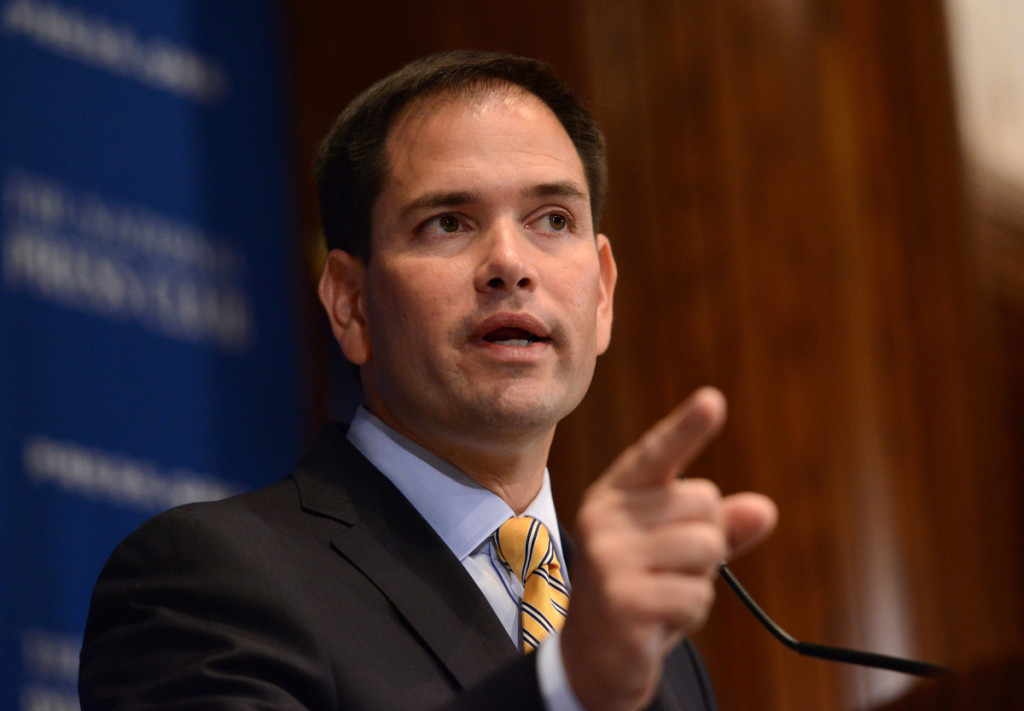
Republican presidential candidate Marco Rubio is warning of too much government meddling with Internet-based “on-demand companies.” Speaking Tuesday in New York, the Florida senator praised Uber and Airbnb. He says such “disruptive” companies and the people who work for them are unfairly burdened by government regulation. He decried the federal government as “out of touch” with Americans who want a high-tech, service economy. Rubio delivered his speech to a group of tech enthusiasts in New York City and he criticized local efforts to cap ride-sharing giant Uber and Airbnb, which helps people rent out their dwellings. Rubio praised Germany as creating a new tax classification for independent contractors who work for a single company. Republished with permission of the Associated Press.
Movement to bring Uber to Birmingham building momentum fast

A weeks-long organized effort to bring ride-hailing services like Uber and Lyft to Birmingham seems poised to cross the goal line in the near future. An outpouring of public support both from citizens – including via “Draft Uber”-style drive on social media – had been reciprocated by elected officials. City Council President Johnathan Austin declared yesterday that the city “definitely wants” Uber in town. Mayor William Bell has also signified his support, and has agreed to an expedited process that will accelerate the drafting and passage of a pro-ridesharing city ordinance. A spokesperson for Uber confirmed the progress on Thursday. “Based on today’s conversation, we’re optimistic that City Council is on a path towards bringing ridesharing to Birmingham,” a spokeswoman told Alabama Today. “We thank Council President Austin for his leadership, and look forward to working with City Council on an ordinance that aligns with the nearly 50 US jurisdictions with pro-innovation, pro-consumer ridesharing regulations.” Negotiation with the Magic City’s municipal government occurred last summer as well, but the two sides could not come to an agreement so talks fizzled. Talks broke down along lines familiar to those who have watched the ridehailing vs. taxis political/regulatory food fight that has occurred across the country – background checks, insurance requirements and taxes. Uber recently staged a unilateral pullout in South Florida’s Broward County after commissioners there attempted to fold ridesharing services – with some minor tweaks – into regulatory scaffolding that governs taxi cabs there. Representatives from Uber said that was not fair, because their business model is entirely different. Back in July local businessman Bill Smith – CEO of grocery delivery service Shipt – started a GoFundMe page to raise money for pro-Uber advocacy efforts. The drive surpassed its $10,000 goal easily. Council President Austin said Wednesday he hopes to have the new rules allowing for Uber and similar services to operate in Birmingham within one month from yesterday’s meeting of the city Transportation Committee.
As Democrats fret over ‘sharing economy,’ GOP moves in
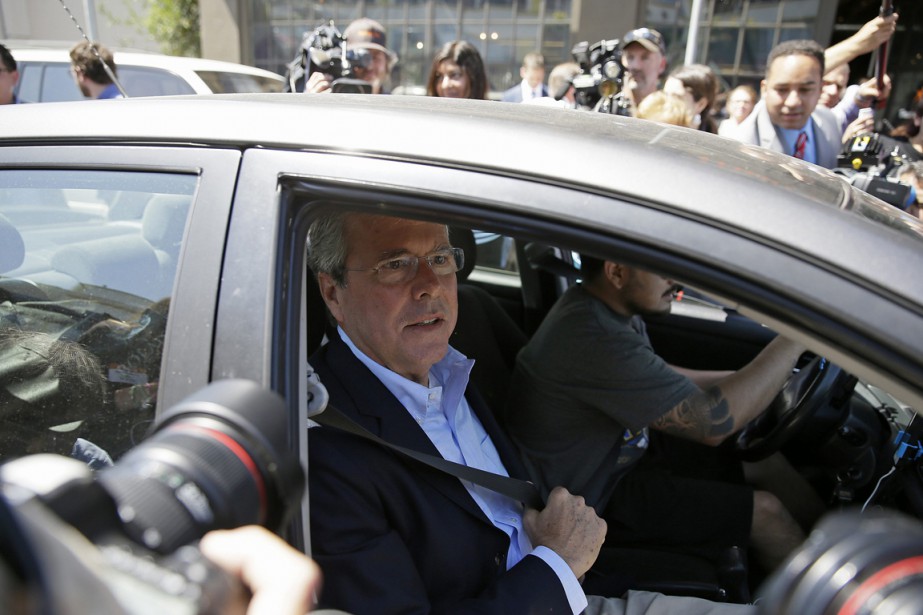
The debate over ride-hailing firm Uber is laying bare divides in the Democratic Party and on the left about how to handle the new “sharing” economy. Republicans are hungry to exploit that ambivalence and make inroads into a wealthy sector of the tech industry. In New York City this past week, liberal Mayor Bill de Blasio tried to limit the number of Uber drivers on the streets, only to be rebuked by the state’s more centrist governor, Andrew Cuomo. The mayor’s administration decided to allow Uber to expand in the city for another year. That followed a pledge by the party’s presidential front-runner, Hillary Rodham Clinton, to “crack down” on companies that classify workers as contractors rather than employees, as critics contend Uber and other companies often do. Clinton did not identify Uber, whose lobbying operation is run by former Obama campaign manager David Plouffe and stocked with Democratic operatives. But her allusion led Jeb Bush, a Republican technophile who says he prefers his Apple watch to apple pie, to ride in an Uber vehicle during a campaign stop in San Francisco days later. For years, Republicans have struggled to gain support in the technology industry, an effort hobbled by in part by their stance on social issues and net neutrality, which is the idea that Internet service providers should not manipulate, slow or block data moving across their networks. But the bright-blue precincts of Silicon Valley have become a regular stop on the GOP circuit. Kentucky Sen. Rand Paul opened a campaign office at a San Francisco tech incubator that hosted a 24-hour “hack-a-thon” last month. Florida Sen. Marco Rubio won the backing of Oracle founder Larry Ellison. He held a fundraiser for the senator, whose new book has a chapter with this title: “Making America Safe for Uber.” “There’s a lot of folks out here who naturally fall into a libertarian place and in the past they were not feeling the love from the GOP,” said Scott Banister, an investor who is raising money for Paul. “Obviously, if the Democratic Party is going to come down on the side of ‘let’s shut down these businesses,’ that’s going to force the issue.” Liberals have increasingly questioned the impact of the industry during a time of scarce jobs and wage stagnation. Former Treasury Secretary Larry Summers has noted that Apple employs a far smaller share of people than companies of its size did in the past. Silicon Valley and the surrounding Bay Area have become a symbol of the income inequality that Democrats bemoan. But it is the recent, explosive growth of Uber and other “sharing economy” companies that have attracted the most concern. HomeJoy recently announced it would shut down in the face of four lawsuits alleging it should treat the people who clean homes on its behalf as employees rather than as independent contractors not entitled to the same workplace protections. “If a technologist wants to disrupt an industry that has middle-class jobs and replace them with insecure, not-as-good jobs, there has to be a conversation about that,” said Heath McGee, president of the liberal think-tank Demos. “Just because there’s an app doesn’t mean it’s anything different. … It’s a question as old as the economy.” Lyft, Uber or the grocery delivery service Instacart and others rely on independent contractors to provide services for a fee: driving, house cleaning, grocery shopping and the like. Uber takes a commission from fees charged to its riders. The drivers, who can work as many or as few hours as they would like, get the rest. Many Uber drivers work part time to supplement their income, while others rely on it entirely. Founded in 2009, it was operating in more than 250 cities and 21 countries by the end of last year. Such innovations have hit core Democratic constituencies. Among them are taxi companies that give generously to urban politicians such as de Blasio, and professors worried about the proliferation of online higher educational courses. But they also benefit another core group: the young, urban people who supported President Barack Obama. Former Obama adviser Dan Pfeiffer warned in a recent that “progressive politicians are making a major error by positioning against the sharing economy.” Banister, the investor helping Paul, said Democrats seem torn on the sharing economy, “not quite sure where the electorate wants them to be.” Republicans, he added, are “able to come back and say, ‘We’re not wishy-washy about this,’” because business, jobs and the economy form “the core of the GOP.” Larry Gerston, political science professor emeritus at San Jose State, said the Uber skirmishes will have limited impact in Silicon Valley, which is far more concerned with federal policy on matters such as patent protection. But Julie Samuels, executive director of Engine, a nonprofit that tries to connect startups with policy debates, said the tone of the debate is worrisome. “When any policymaker starts to ostracize the tech community, they’re ostracizing people who can make things better,” she said. Republished with permission of the Associated Press.
Birmingham supporters of Uber, Lyft start Facebook, GoFundMe accounts
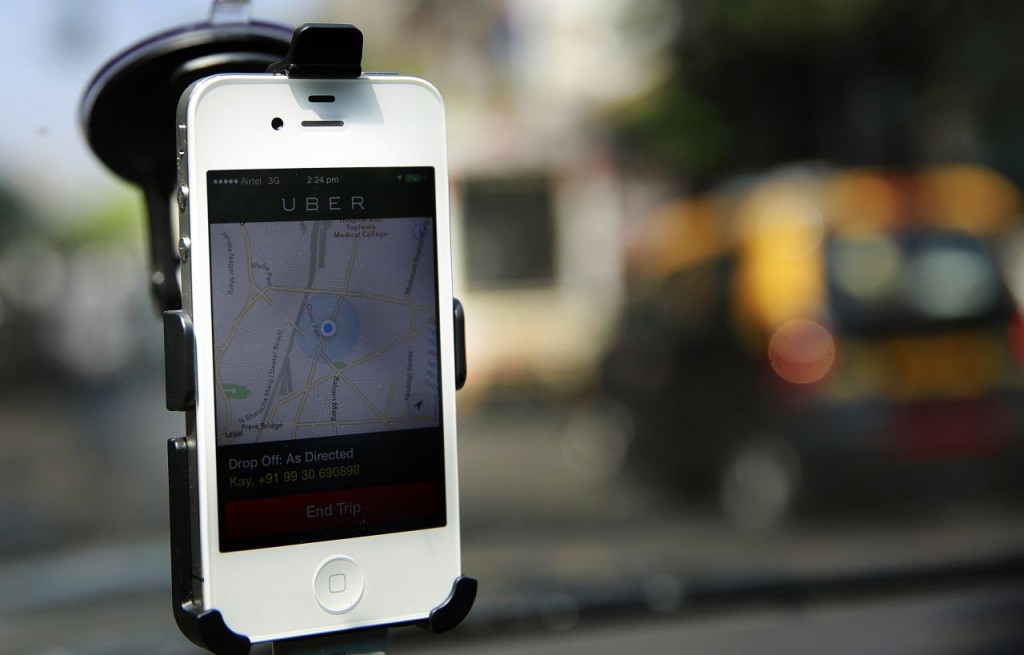
A Facebook page supporting Uber and Lyft came online Tuesday and as of 3:20 p.m. Wednesday already had 2,143 supporters. A GoFundMe account which indicates it was created by Bill Smith, the CEO of Shipt, has raised $1,940 toward a $10,000 goal. Organizers describe themselves and their goal on the page saying: We are a group of Birmingham citizens and businesses that are standing up for the transportation options that we deserve. Ride sharing is a necessity to create a vibrant city that attracts visitors and businesses … it’s not just a “nice” to have anymore. People that visit Birmingham expect to just open the Uber or Lyft app and get a ride on demand. When visitors realize these services aren’t available, it makes them think very negatively about our city. For Birmingham residents, ride sharing offers a safe option to get around when enjoying the awesome restaurants and bars around town. With 750 million dollars being invested downtown to build six new hotels and thousands of apartments, now is the time to bring ride sharing to Birmingham! Funds raised will directly support these efforts. Efforts include lobbying, PR, and marketing. Rep. Jack Williams sponsored legislation supporting ride sharing this past session. When asked about the organic movement he said, “I am glad to see continued public interest and support for bringing ride sharing to Alabama. I am asked about ‘when will Uber or Lyft come to Alabama?’ multiple times per week.” When asked about the page, a spokesperson for Uber said, “Uber is not affiliated with this group.” UPDATE: The GoFundMe page has been updated to reflect today’s news the Birmingham City Council has passed an ordinance provisionally approving ridesharing to operate in the Magic City. Writes page creator Bill Smith: I am super excited to announce the Birmingham City Council just passed a new Transportation Network ordinance that will allow Uber to begin operations. This is a major step forward for our city. There is a 6 month review period, I feel confident that there won’t be a problem moving forward after the review period. Uber hasn’t announced a launch date yet, as soon as they do I’ll let you know. When they do launch, let’s all make sure to use the service as much as possible. Thank you for supporting this effort!


